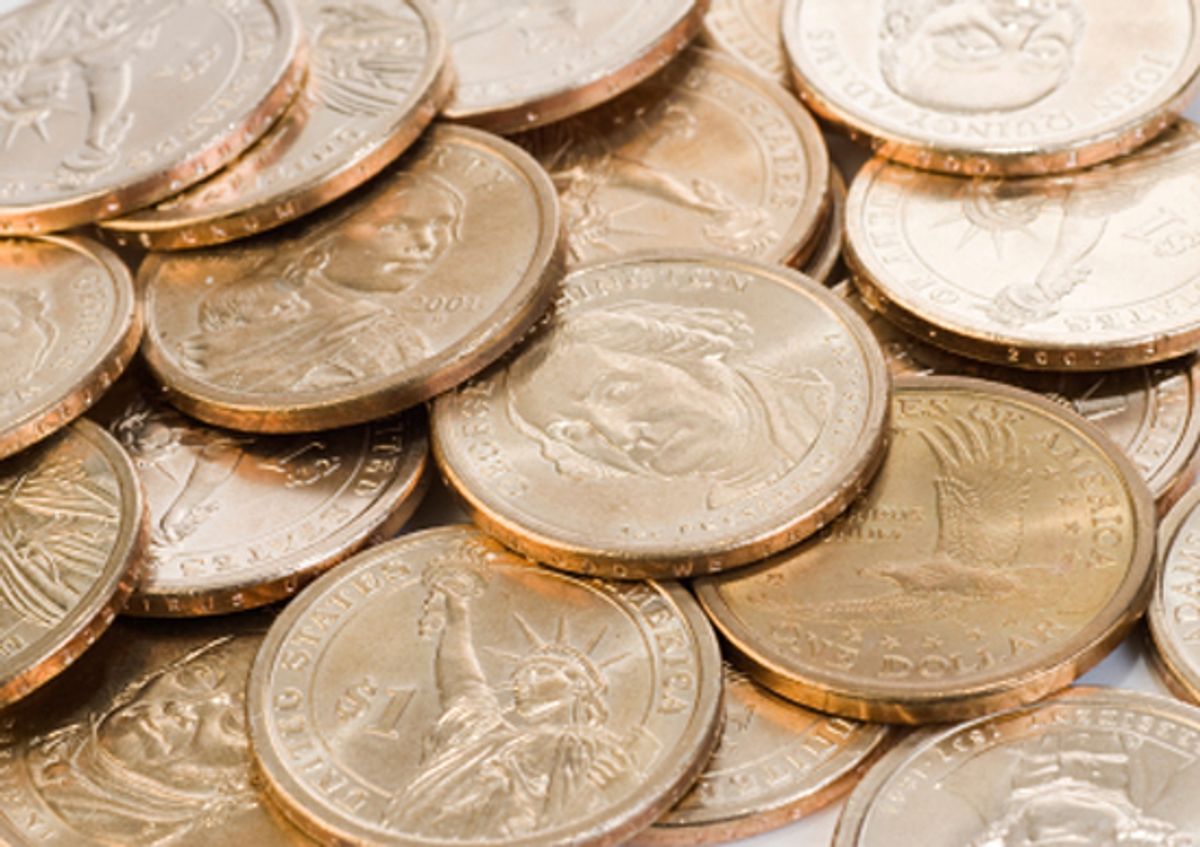In an effort to cut costs, the Government Accountability Office recently suggested that the federal government eliminate the one dollar bill. According to a report released last week, using a dollar coin instead could save up to $5.5 billion over the next 30 years. Here’s the argument in favor of the switch:
- Coins are cheaper and more durable: Due to rising cotton prices, the dollar bill is now literally worth less than the paper it's printed on. Dollar coins cost considerably less to produce and last much longer. Dollar notes only last two to three years; dollar coins can last up to 30 years or more.
- All the cool people are doing it: The European Union, Canada, and Britain have already made the switch, and now use mostly coin money. Their transitions took a coordinated government effort, but were also relatively painless. And given how easily Americans have adapted credit cards, online bill payments, and other forms of "digital money," the switch might not be too jarring.
- Coins are more eco-friendly: Retiring greenbacks could actually make the U.S. economy more green. Because of the paper they’re printed on, dollar bills can’t be recycled, and retired notes are shredded and put into landfills. Fewer paper bills would mean less waste to bury.
- No more jams in vending machines: Some argue that the dollar coin could boost some businesses, with companies now forced to spend up to a billion dollars a year in repair costs and sales on vending machines. The dollar coin would eliminate these costs.
In spite of these arguments, it looks like a move to retire the dollar bill would face staunch opposition. Americans seem fairly attached to paper money, and some find coins too clunky or awkward to carry around. Congress has already introduced legislation to oppose such a move away from the greenback.



Shares